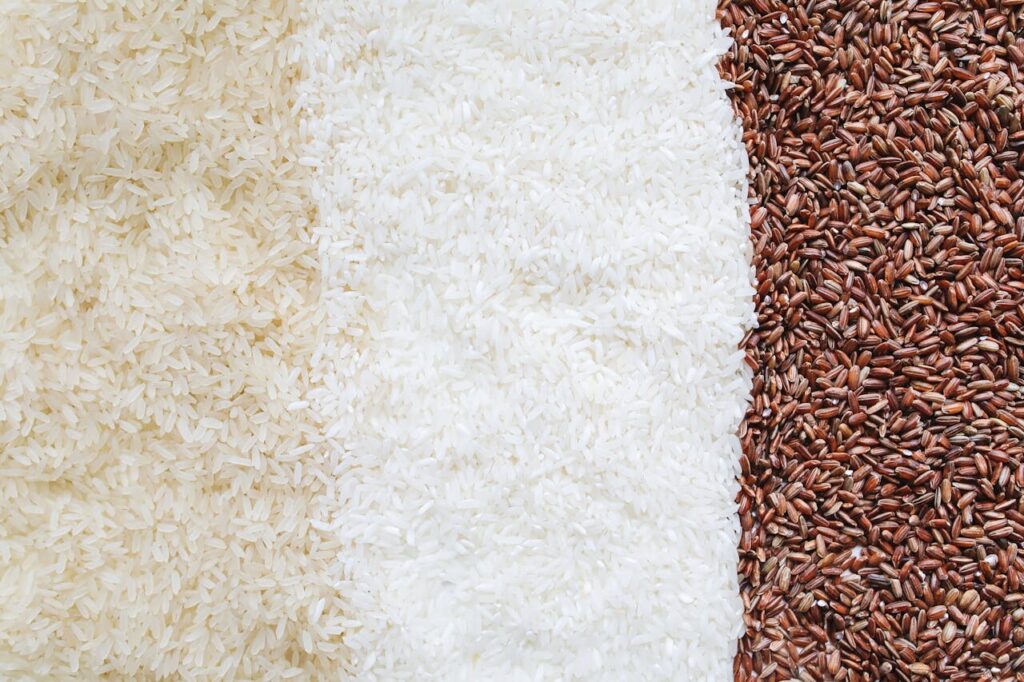Rice is a staple food for billions of people worldwide, forming the foundation of many traditional diets. However, in recent years, it has been scrutinized as a potential cause of weight gain, particularly in Western diet culture. Many people are wondering, “Does rice make you gain weight?” The answer isn’t as simple as yes or no. Rice itself is not inherently fattening, but the way it is consumed, portion sizes, and overall dietary patterns all play a role in its impact on body weight.
Understanding Rice and Its Nutritional Profile
To determine whether rice contributes to weight gain, it’s essential to examine its nutritional composition. Rice primarily consists of carbohydrates, providing a quick source of energy for the body. There are several types of rice, each with different nutritional values:
- White rice: The most commonly consumed variety, white rice is refined, meaning its bran and germ have been removed. This process makes it softer and easier to digest but strips away fiber, vitamins, and minerals.
- Brown rice: A whole grain, brown rice contains more fiber, vitamins, and minerals compared with white rice. The fiber content slows digestion, helping to keep you full for longer.
- Wild rice and black rice: These are nutrient-dense varieties packed with antioxidants, fiber, and essential minerals that contribute to overall health.
When we ask, “Does rice make you gain weight?” it’s important to consider the type of rice being consumed. Whole grain rice varieties tend to be more beneficial for weight management due to their higher fiber content and slower digestion rates.
Rice and Caloric Intake
Weight gain occurs when there is a calorie surplus—when more calories are consumed than burned. Rice itself is not inherently fattening, but because it is carbohydrate-dense, eating large portions can contribute to excess caloric intake.
A single cup of cooked white rice contains around 200 calories and 45 grams of carbohydrates, while brown rice has a similar calorie count but provides more fiber and nutrients. If rice is consumed in moderation and balanced with proteins, healthy fats, and vegetables, it is unlikely to cause weight gain. However, when eaten in excessive amounts, especially with high-calorie additives such as butter, oil, or creamy sauces, it can contribute to an increased caloric intake.
How Rice Fits into Different Diets
Many people who ask, “Does rice make you gain weight?” are concerned about how this dish fits into various diet plans. The impact of rice on weight management depends on overall dietary habits and lifestyle factors.
- High-carb diets: In many Asian countries where rice is a dietary staple, obesity rates are relatively low. This suggests that rice itself is not the problem, but rather how it is consumed within an overall balanced diet.
- Low-carb diets: Some weight loss programs, such as the ketogenic diet, discourage rice due to its high carbohydrate content. However, for individuals who are not strictly low-carb, rice can be a part of a healthy diet in controlled portions.
- Athletic and active lifestyles: For people with high energy needs, such as athletes or those engaging in intense physical activity, rice can be an excellent source of energy and muscle recovery.
Ultimately, rice can be a part of a healthy diet, but portion control and overall meal balance are crucial in determining its impact on weight.
The Glycemic Index and Rice
One factor that influences whether rice contributes to weight gain is its glycemic index (GI), which measures how quickly a food raises blood sugar levels.
White rice has a higher glycemic index compared with brown or wild rice, meaning it can cause a rapid spike in blood sugar. Frequent blood sugar spikes can lead to insulin resistance over time, which may contribute to weight gain and an increased risk of type 2 diabetes.
Brown rice and other whole grain varieties have a lower glycemic index, leading to a slower, steadier release of glucose into the bloodstream. This helps regulate appetite and reduces the likelihood of excessive calorie consumption.
If you’re asking, “Does rice make you gain weight?” it’s helpful to consider the glycemic index of the rice variety you’re consuming. Opting for whole grains over refined options can make a significant difference in metabolic health and weight management.
Does Eating Rice at Night Cause Weight Gain?
A common concern is whether eating rice at night leads to weight gain. Some believe that consuming carbohydrates in the evening results in fat storage, but scientific evidence does not fully support this claim.
Weight gain is influenced by total calorie intake throughout the day, not just the timing of carbohydrate consumption. If rice is eaten at night as part of a balanced meal and within daily caloric needs, it is unlikely to cause weight gain. However, overeating rice late at night, especially in large portions or alongside unhealthy foods, may contribute to weight gain due to reduced physical activity levels before bedtime.
Healthy Ways to Incorporate Rice Without Gaining Weight
For those who enjoy rice but are concerned about its effects on weight, there are several strategies to include it in a balanced diet without excessive weight gain.
- Choose whole grain rice: Opting for brown rice, wild rice, or black rice increases fiber intake, promoting fullness and stabilizing blood sugar levels.
- Control portion sizes: Instead of filling the entire plate with rice, stick to ½ to 1 cup per serving and balance it with protein and vegetables.
- Pair rice with protein and healthy fats: Eating rice alongside lean proteins such as chicken, fish, or tofu, and adding healthy fats such as avocado or olive oil, can slow digestion and reduce blood sugar spikes.
- Cook rice with added fiber: Mixing rice with legumes (such as lentils or beans) enhances its nutritional profile and improves satiety.
- Cool rice before eating: Studies show that refrigerating cooked rice and reheating it later increases its resistant starch content, which acts like fiber and reduces its impact on blood sugar.
By implementing these habits, rice can remain a part of a healthy diet without contributing to unnecessary weight gain.
Final Verdict: Does Rice Make You Gain Weight?
So, does rice make you gain weight? The answer depends on how it is consumed. Rice alone is not a fattening food, but excessive consumption, particularly of refined white rice, may contribute to weight gain if it leads to a calorie surplus. However, when eaten in moderation, balanced with protein and fiber, and incorporated into an overall healthy diet, rice is unlikely to cause weight gain.
Instead of avoiding rice altogether, focusing on portion control, choosing whole grain varieties, and pairing it with nutrient-dense foods can help maintain a healthy weight while still enjoying this versatile staple.
Contact Dr. Cheryl Winter today to learn how to optimize your diet for better health and sustainable weight management!








